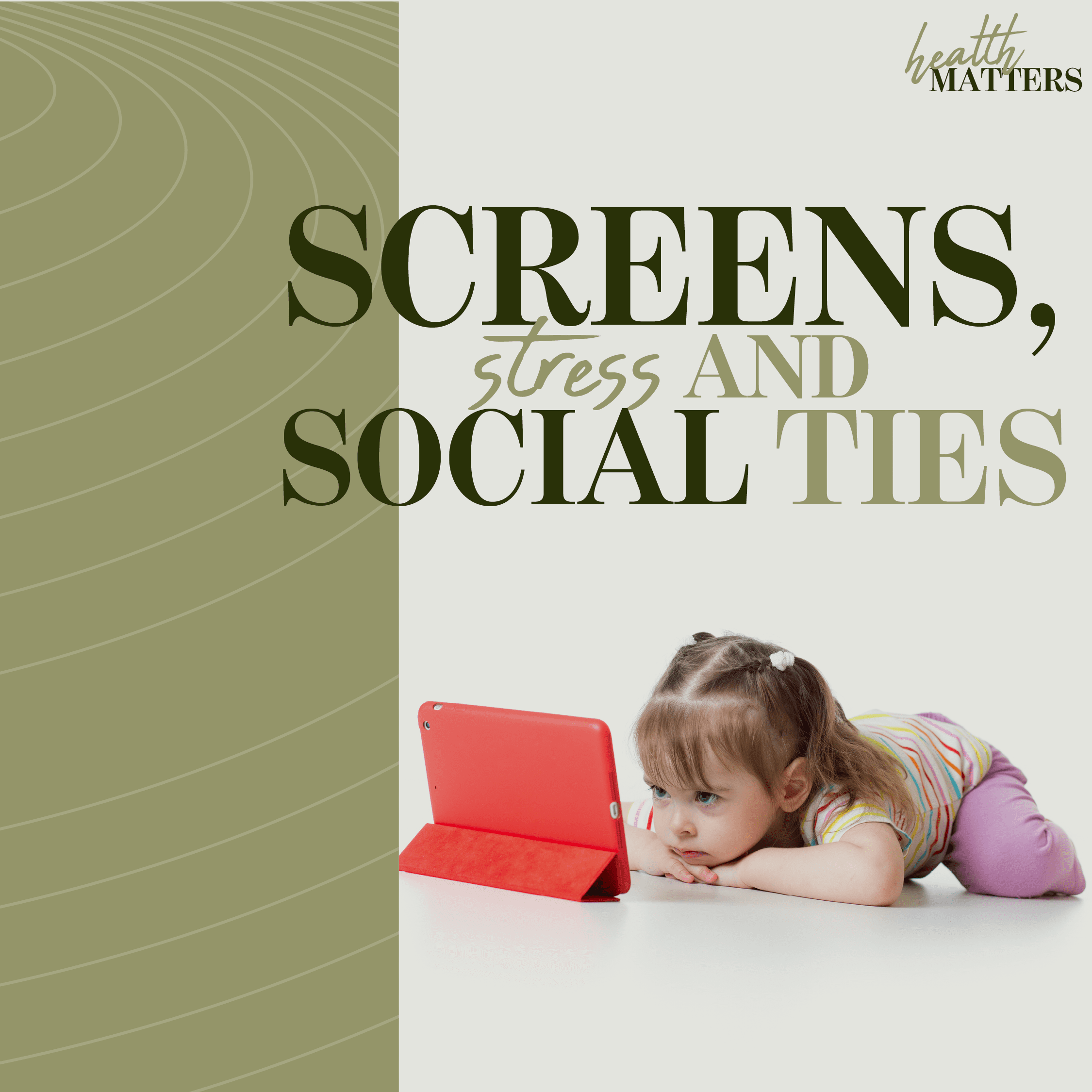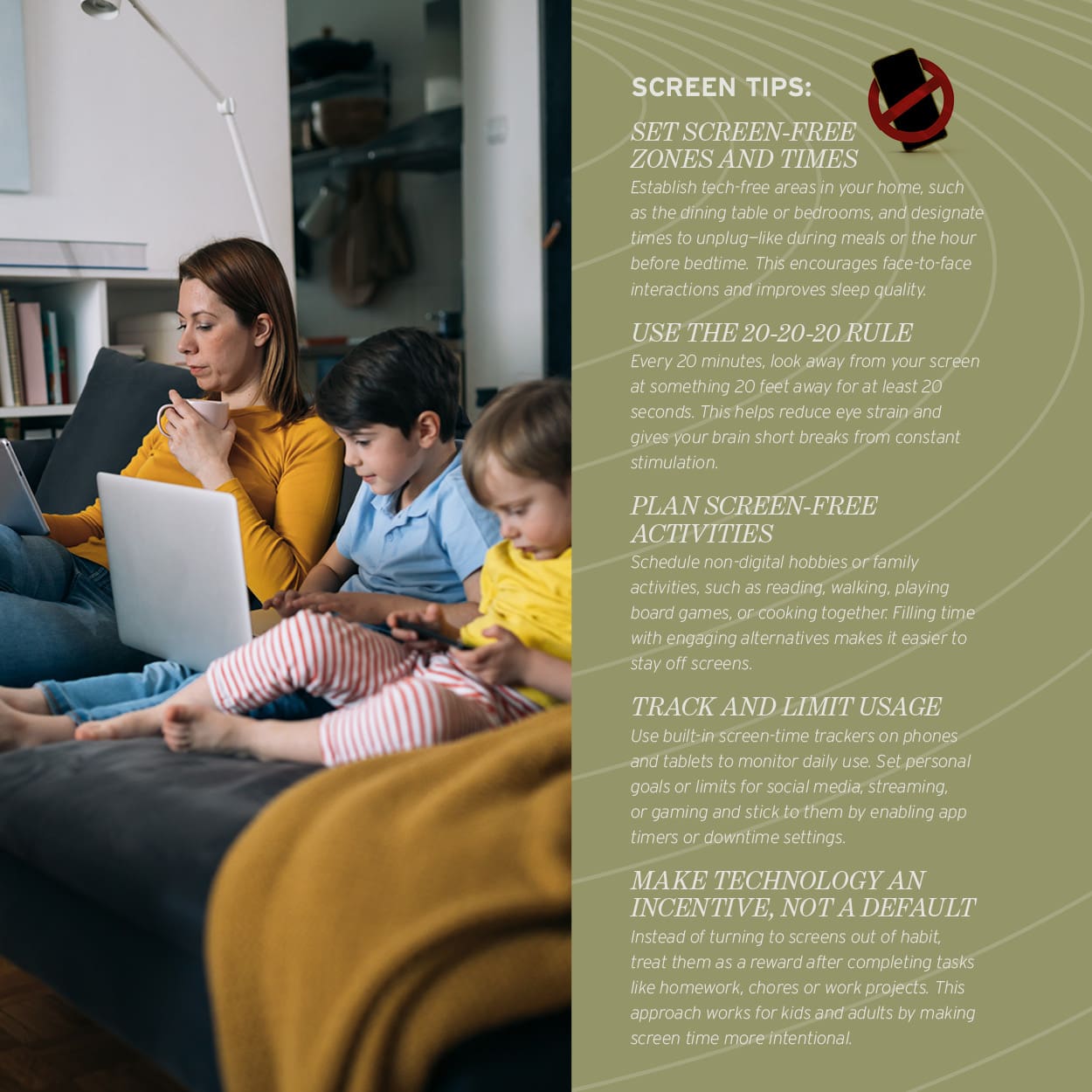
By Cindy Peterson
Finding Balance in a Digital World

Technology has become an inseparable part of modern life, influencing how people communicate, work and relax.
According to a 2024 Pew Research Center study, 31 percent of adults report being online “almost constantly,” compared to 21 percent in 2015.
But as screen time rises, concerns are growing about technology’s impact on mental health, real-world relationships and the emotional consequences of constant connectivity.
A review published by the National Library of Medicine found that heavy technology use, especially social media, is linked to higher rates of anxiety, depression and loneliness, particularly when it replaces in-person interactions.
Many people use their phones or streaming services as a way to “escape,” but excessive reliance on screens for comfort may worsen feelings of stress and anxiety. Research from the University of Pittsburgh found that adults who spend more than two hours a day on social media are twice as likely to experience perceived social isolation compared to those with lower usage.
The younger generation is also profoundly affected.
“When students have a lot of screen time, we notice them having a hard time making eye contact and having conversations or even developing friendships,” says Stacy Fields, a mental health liaison at Treadway Elementary in Leesburg.
She explains that children are becoming dependent on technology for coping rather than learning healthy social skills. “We have kids not able to handle simple disagreements with their peers because they don’t have the skills to interact appropriately,” she says. “Instead of resolving conflicts, students often retreat to their phones for comfort.”
Stacy notes that dependence on devices is shaping emotional regulation in younger generations. “It’s not because they’re being defiant, but because they have come to depend on them as means of coping.”
Experts say adults may fall into the same pattern, turning to technology to avoid difficult conversations or stressful situations rather than developing coping strategies.
Sleep disruption is also a growing issue for both teens and adults. Blue light from phones, tablets and televisions suppresses melatonin production, making it harder to fall asleep. Poor sleep, in turn, contributes to increased stress, irritability and difficulty concentrating.
But is dependence on technology all bad? Is there a healthy balance?

Benefits of technology When Used Wisely
Despite concerns, experts agree that technology is not inherently harmful. Used wisely, it can enhance mental health care and strengthen social connections.
Moderation is the key. Setting clear boundaries for using technology can help maintain healthy relationships and mental well-being.
Stacy encourages parents to treat screen time as a reward rather than an all-day activity. “Minimize the screen time as much as they can,” she says. Stacy also suggests encouraging outdoor activities or family walks to reduce dependence on technology.
For adults, mental health professionals recommend taking regular “tech breaks,” practicing mindful social media use and prioritizing in-person connections. Turning off notifications, setting time limits on apps and creating screen-free zones at home can help restore balance.
Photos: Supplied
Originally from the small town of Berryville, Arkansas, Cindy has become a multimedia specialist in journalism, photography, videography, and video editing. She has a B.S. in Communications from the University of Central Arkansas and produces Style Magazine's Sports Hub Podcast and the Healthy Living Podcast. She also produces for Beacon College’s Telly Award-winning PBS show, “A World of Difference.” When she isn’t working, Cindy loves traveling the National Parks with her husband , Ryan, and son, David, photographing wildlife.







































